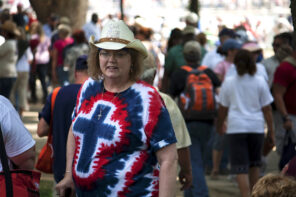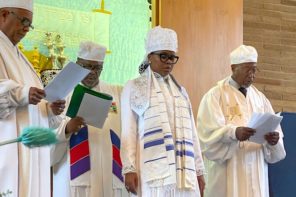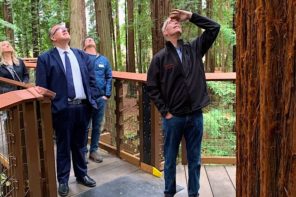As a Jewish Renewal rabbi, I’m interested in the renewing of Judaism. I take a post-triumphalist stance toward other traditions even as I seek to lift up what’s beautiful in my own. As a Rabbi Without Borders I aim not to worry about communal dilution, nor to work from a narrative of erosion. (That’s part of how RWBs self-define.) Wearing both of these kippot, I find reasons for hope in the Pew study.
That one in five Jews today describe themselves as having “no” religion tells me we’re swept by the same broad social phenomena as the rest of our nation, where “nones” have long been on the rise. My question is: how can we open up the richness of Judaism (or of the many varieties of Judaism—Judaisms, as it were) to those who have opted out of the communal or congregational mainstream as they’ve understood it?
I’ve long argued that communal overfocus on the Shoah and on intermarriage effectively blinds many of us to the richness and diversity of our tradition. Faced with the revelation that 73% of today’s American Jews regard remembering the Shoah as a lynchpin of their Judaism, I see educational and spiritual opportunity knocking.
That three in every minyan don’t identify with a particular denomination intrigues me. Given today’s three transdenominational seminaries (ALEPH, AJR, and Hebrew College) I suspect that percentage may grow in years to come. For me that’s a value-neutral shift. I want to connect people with God and with Judaism(s), regardless of denomination.
I don’t know where this paradigm shift is headed, but I’m confident that what’s essential in Judaism—especially the value we place on the limitless journey of formulating new understandings of Torah, of God, and of our tradition—can weather these changes. So the ground is shifting beneath our feet—what else is new? Together, maybe we can figure out how to fly.
*Read more from “Pew and the Jews: ‘So What?'”, an RD special feature on the Pew survey.




